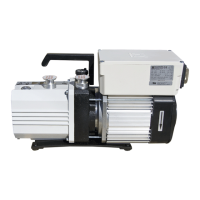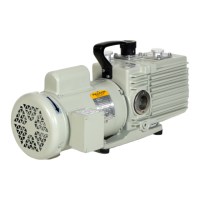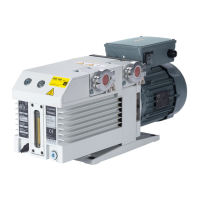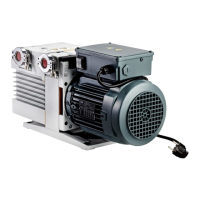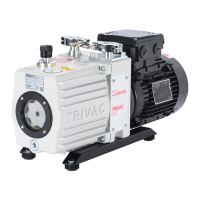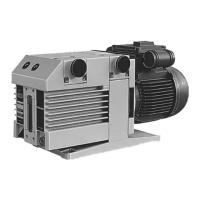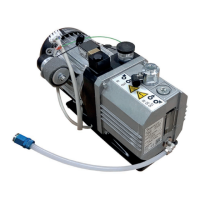8.3 Maintenance work
Depending on the process involved, dangerous substances may escape
from the pump and oil. Take the appr
opriate precautions. Observe safety
regulations.
Do not install used seals. Always use new seals. Use only genuine parts
provided by us.
8.3.1 Check the oil level
CAUTION: MAINTENANCE SAFETY
Risk of damage to the equipment. Check and top up oil only after having shut down
the pump rst. Note the safety information given in Thermal hazards on page 9 and
Hazards caused by materials and substances
on page 9.
During the operation of the pump, the oil level must always remain between
marks on the oil-level glass. Refer to Table: Maintenance interval. The
amount of oil must be checked and topped up as required.
The oil level must be checked at least once a day. Stop the pump and ll oil
when needed.
Pumps that are not directly delivered from us, for example- in systems, may
have been lled with oils different from recommended oil.Refer to
Lubricants and oil on page 14. In this case, a relling with recommended oil
may cause problems. Therefore check the oil type before relling and ll in or
change the oil with suitable oil.
Overlling leads to oil losses at high intake pressures. High oil consumption
often indicates that exhaust lters are clogged.
8.3.2 Check the oil condition
The ageing process for the standard operating uid (refer to Lubricants and
oil on page 14) will depend very much on the area of application for the
pump.
There exist the following ways of checking the oil condition:
1. Visual check: Normally the oil is clear and transparent. If the oil
darkens, it must be changed.
2. Chemical check: The neutralisation number of oil is determined
according to DIN 51558. If it exceeds 2, the oil must be changed.
3. Viscosity check: If the viscosity of LVO 130 at 25 °C exceeds a level of
240 mPas (20% higher than the viscosity of fresh oil) an oil change is
recommended.
If gases or liquids dissolved in the oil result in a deterioration of the ultimate
pressure, the oil can be degassed by allowing the pump to operate for
approximately 30 minutes with the intake port closed and the gas ballast
valve open.
When checking the oil, switch off the pump rst and drain out the required
amount of oil through the oil drain valve from the warm pump into a beaker
or similar container.
Note the maintenance safety information given in Safety information on
page 39.
43
300956027_002_A0 - 03/2022 - © Leybold
Maintenance
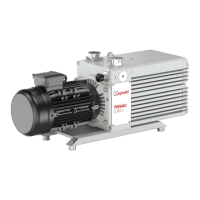
